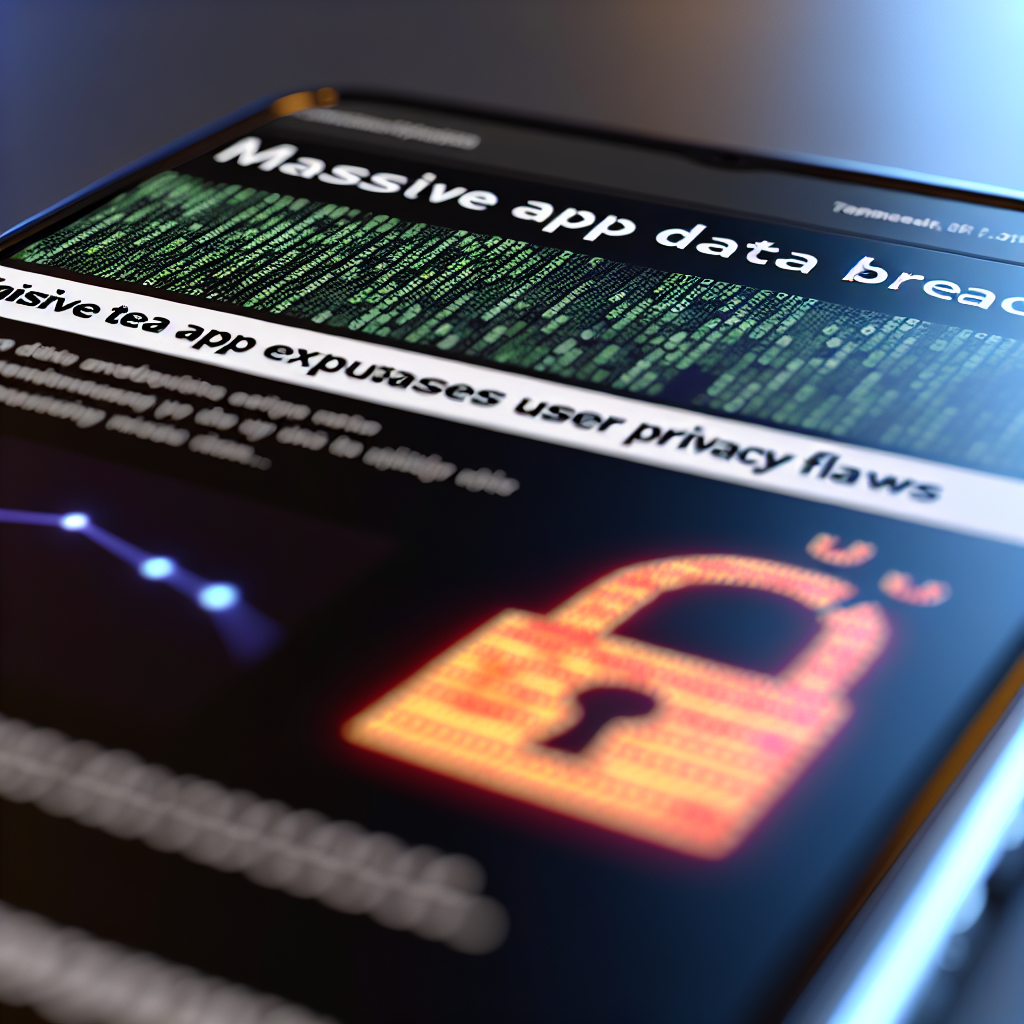
In the ever-evolving world of online dating and social networking, the Tea app emerged as a unique platform designed exclusively for women to share dating advice and vet potential partners. However, its promise of safety was shattered by a massive data breach in July 2025, where sensitive user information was leaked on the infamous imageboard site 4chan. This article delves into the app’s features, the details of the hack, and the broader implications for digital privacy.
Understanding the Tea App: A Sisterhood for Safer Dating
The Tea app, officially known as Tea Dating Advice, was launched in 2023 with a mission to empower women by creating a “sisterhood” for sharing insights on men they date or consider dating. Unlike traditional dating apps, Tea functions as a whisper network, allowing verified female users to post reviews, ratings, and warnings about men’s behaviors, such as red flags like cheating or criminal history. To join, users must provide identification for verification, ensuring only women participate and maintaining a level of anonymity in postings.
What sets Tea apart is its integration of advanced tools for due diligence. Users can access public records searches, perform reverse image lookups on photos, and engage in group chats to discuss experiences. Proponents hail it as a vital tool for women’s safety, enabling them to avoid potential dangers in the dating world. For instance, the app’s rating system categorizes men with “green flags” for positive traits or “red flags” for issues like catfishing or abuse. By July 2025, it boasted over 1.6 million users, reflecting its rapid growth amid rising concerns about online dating risks.
However, this innovative approach has not been without controversy. Critics argue that Tea borders on doxxing, potentially leading to defamation or privacy invasions. Legal experts, like attorney William Barnwell, have noted that while defamation claims could arise, truth serves as a defense, highlighting the app’s delicate balance between empowerment and ethical boundaries. This tension underscores Tea’s role in modern feminism, transforming private whispers into a digital database, but it also sets the stage for vulnerabilities that malicious actors could exploit.
The 4chan Data Breach: Exposure and Fallout
Building on the app’s reliance on user data, the July 2025 breach exposed the inherent risks of such platforms. Hackers allegedly accessed Tea’s unsecured backend database, which lacked basic protections like passwords or encryption, leading to a massive leak on 4chan—a notorious anonymous forum known for its unmoderated content and history of hosting controversial material, including leaks and conspiracy theories.
The breach compromised approximately 72,000 images, including 13,000 selfies and photo IDs used for verification, alongside 59,000 images from posts and direct messages. Private messages and personally identifying information were also dumped, putting users at risk of identity theft, harassment, or worse. This incident not only violated Tea’s terms of service, which promised data deletion after verification, but also raised questions about the app’s compliance with privacy laws like GDPR or CCPA.
4chan’s involvement amplified the damage, as its users quickly disseminated the data, turning a security lapse into a public spectacle. The leak drew parallels to past incidents on the site, such as the 2014 celebrity photo hacks, emphasizing how anonymous platforms can weaponize stolen information. In response, Tea’s developers faced backlash, with experts from the R Street Institute criticizing the prolonged storage of sensitive data. This event highlights the precarious intersection of user-generated content and cybersecurity, urging a reevaluation of how apps handle personal information in an era of frequent breaches.
In summary, the Tea app offered a promising space for women to navigate dating safely through shared knowledge and verification tools, but the 4chan-orchestrated data breach in July 2025 revealed critical flaws in its security infrastructure, exposing thousands to privacy risks. This incident serves as a stark reminder of the vulnerabilities in digital platforms. Readers should prioritize apps with robust encryption and regularly review privacy settings to safeguard their personal data in an increasingly connected world.